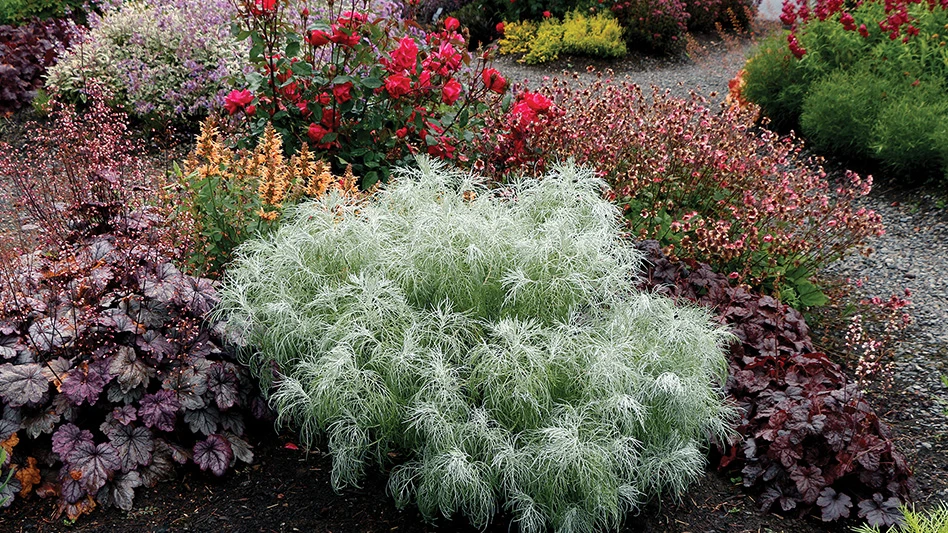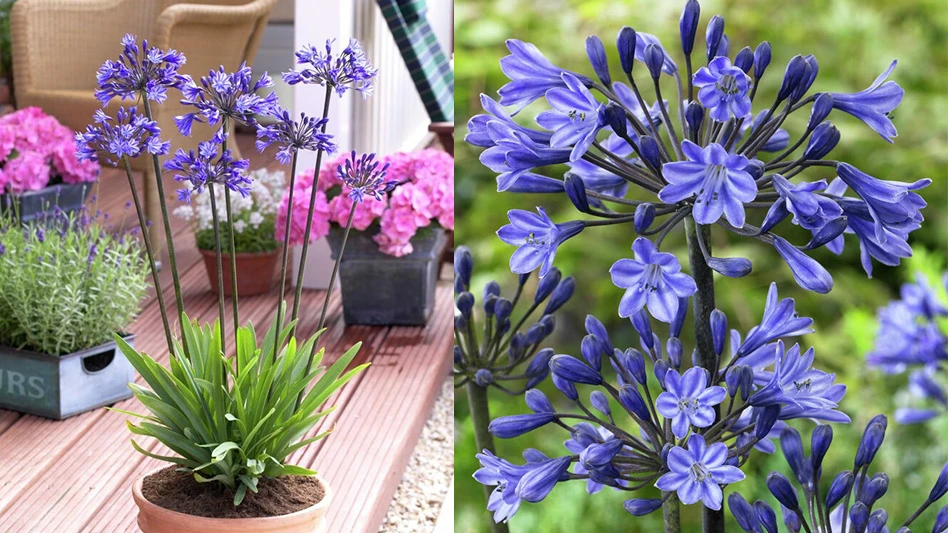
_painting_at_Delaney%27s_Fall_Festival_fmt.png)
Few retailers would dispute that children influence parental spending. A quick review of impulse items at your own registers probably yields evidence of kid power at work. When you create a kid-welcoming environment in your independent garden center, you reach beyond children to build loyalty and a love of gardening in all family members. From “kid zones” to child-centric workshops and displays, kid-friendly IGCs are building the future.
Make kids feel welcome
Creating kid-friendly experiences can be as simple as giving kids space to be kids. At Delaney’s Landscape Center in Polson, Mont., kid-oriented thinking came easily. What began years ago as a sandbox for the owners’ own children grew into a fenced indoor/outdoor area where kids enjoy creative toys, such as alphabet and building blocks, alongside a playhouse and sandbox trucks. “We’ve made being kid-friendly and family-centered our goal,” owner Twila Delaney says.


Former operations manager Kelsie Delaney, one of the original sandbox kids, takes pride in the her store’s child-welcoming culture. “When a kid comes in, we crouch down and talk to that kid. We show them the toys and have a real conversation with that child,” she says. “We greet the kids as much as we do the adults. We’re excited to see kids. That attitude is contagious throughout our employees.”
For Ryan Van Wilgen, vice president of Van Wilgen’s Garden Center in North Branford, Conn., kids and families are top priorities. Children flock to the store’s “over-the-top” outdoor playground area, complete with swing sets and diggers. An indoor kid’s play zone showcases toys that the company sells. Indoor and outdoor ponds are also big draws. Marketing and advertising manager Gina Amoroso reports that families come to lunch by the pond and then go play. “We want them to feel like the garden center is a place for the whole family,” she says.
Kid-welcoming experiences embrace shopping, too. Parents and pint-size shoppers at Sargent’s Gardens in Rochester, Minn., find all the essentials for child gardeners. Fast-selling displays highlight child-size garden tools, mini rakes and hoes, small watering cans and tiny garden gloves that encourage kids to join mom and dad outdoors.
Kids have a great time with child-size shopping carts at Van Wilgen’s and Delaney’s. “They’ll follow their parents into the greenhouse, and next thing you know they’re loading up a pansy or petunia in their shopping cart,” Twila Delaney says. “Many times, parents go ahead and buy those plants.”
Offer kid-centric programs and events

Since its beginning 20 years ago, Van Wilgen’s Kids Klub has evolved from a simple gift program to a series of activities filled with purpose and lessons. Monthly events during spring and fall target toddlers to 10-year-olds with lessons and hands-on activities kids can take home. Many events are free, while some have fees. Mud walks and worm hunts pair with lessons on food waste, compost and worm castings. Biodegradable ice cream cones get planted with marigolds. When birthdays roll around, kids receive cards with seed packets inside.
In Sargent’s Wee Wednesdays program, Master Gardener and sales associate Beth Philbrick leads two back-to-back classes on the third Wednesday of each month from April through December. Aimed at preschool and kindergarten ages, classes have garden and nature themes and include a lesson, a related craft and snacks. A parent or caregiver stays for the class and pays $8 for the first child and $4 per additional child.

Limited to the first 15 kids who sign up for each session, the classes stay full. Lessons deliver kid-level basics on big topics such as where food comes from, good and bad bugs, pollinators, native plants and composting. “We cover topics that are pertinent for today, with an eye on educating the child and the caregiver,” Philbrick says. “We want to encourage kids to get outside, interact with family members or friends, and learn what happens in nature all year.”
Delaney’s focus has expanded to education as well. “We really feel that teaching the kids to love gardening and love being outdoors helps build the gardeners of tomorrow,” Kelsie Delaney says. During spring and summer, kids aged 3 through 10 enjoy weekly “Story Time in the Garden” sessions every Saturday. The free events include a gardening-related lesson and craft, plus games, songs or other fun.


Build community and customers
Ryan Van Wilgen credits the Kids Klub for an increase in parents with strollers and toddlers in the IGC. Amoroso underscores the importance of Van Wilgen’s family approach. “It brings in young families,” she says. “We are looking for that demographic: the young family, the new home owners, people who are going to be spending time outside with their kids, investing in their landscape and spending time in their backyard.” Amoroso emphasizes the value of an educational component. “Families come not just because something free is going on, but to learn,” she says. “We’ve had really great results in adding that element of education.”
At Delaney’s, the kid-friendly atmosphere draws customers from two hours away to the IGC’s rural setting. “It’s been really fun to watch our events grow,” Kelsie Delaney says. “I have seen a very big difference in our customer base. It’s grown much larger in the young 30s, young parents age group, and it’s helped build a sense of community around our garden center. We know the kids’ names and the parents’ names, and we can talk and interact. It’s really made the garden center feel like a community.”
Philbrick notes that adults attending Wee Wednesdays with children often participate and ask pertinent questions themselves. The program is especially popular with young moms and grandparents. “As the adults learn, they can go home and re-teach the children and work along with them. You get a sense we’re educating the community at large, which is a wonderful feeling,” Philbrick says.





Get started at your IGC
Kelsie Delaney’s advice for creating a kid-friendly atmosphere is simple. “We started with a sandbox, and kids still love that,” she says. “Make a place that kids can play.” The Delaneys urge patience as annual events and word of mouth build. For Twila Delaney, kid-friendly and family-oriented activities aren’t optional. “If you’re not centering around kids and encouraging parents to bring kids, I don’t know what you’ll do when your customer base gets older,” she says. “We’re building our future customers. I think those who aren’t doing that are missing a very important opportunity.”
Amoroso stresses that keeping whole families in mind is essential to the success of any kids program. “Whatever you plan on doing, the plan should be for the whole family, not just for kids. Adults enjoy the events, too,” she says. “Tie in the entire family and think ‘Will everyone like to come and do that?’ If parents come here and have fun, too, they’ll remember that. Always be thinking of the whole family, so they all want to come back, not just the kids.”
Now the father of a toddler himself, Ryan Van Wilgen sums up the secret behind family-oriented, kid-friendly events. “Having a kid of your own definitely gives you ideas,” he says. “When I was younger, we always used to say ‘Let’s put the eyes of the customer on this.’ Now I understand. Once you have a kid, it changes your vision.”

Explore the April 2017 Issue
Check out more from this issue and find your next story to read.
Latest from Garden Center
- Applications open for Horticultural Research Institute Leadership Academy Class of 2026
- Weekend Reading 11/29/24
- Trump threatens 25% tariffs on Mexico and Canada in move that could hurt horticulture
- Meet the All-America Selections AAS winners for 2025
- AmericanHort accepting applications for HortScholars program at Cultivate'25
- 2025 Farwest Show booth applications now open
- The Garden Center Group hosting 'The Financial Basics of Garden Retailing Workshop Series'
- Weekend Reading 11/22/24





